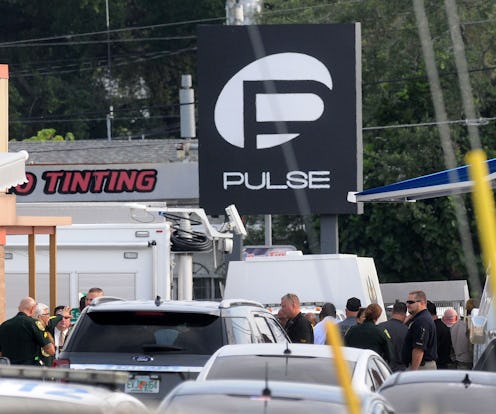Update: In a press conference Monday morning, Orlando police confirmed that 49 people had been killed and 53 injured early Sunday morning at Orlando's Pulse gay nightclub in the deadliest mass shooting in recent U.S. history. After opening fire on the crowd, an individual named Omar Mateen had taken hostages and was ultimately killed in a stand-off with police; Mateen had called 911 and pledged allegiance to the Islamic State shortly before the massacre. Orlando mayor Buddy Dyer declared a state of emergency, and the massacre is being investigated as an act of terrorism.
The victims' names were released by the city of Orlando on its website as their next of kin were informed. Here are some ways to help the Orlando shooting victims and their loved ones; you can also donate to the victims' fund, as well as express your solidarity with the LGBTQ community by posting a tribute online. You can also attend a vigil near you to honor the victims.
Earlier: Early Sunday morning, a lone gunman killed at least 50 people in a shooting at an Orlando, Florida nightclub. With just as many victims being treated in local hospitals, the local blood donation center, OneBlood, is saying there is an urgent need for blood donations, especially O Negative, though O Positive and AB Plasma donors are also needed. Orlando Health is urging people not to come to local hospitals to donate, so if you're in the Orlando area and want to help, you can find donation locations at OneBlood.org instead. Update: The Orlando Sentinel is reporting that OneBlood is overwhelmed with people wanting to donate, and is asking donors to make an appointment and return in the coming days.
Earlier: O Negative blood types are relatively rare, according to the Red Cross, and they can only receive donations from other O types. However, O blood types are also universal donors, meaning people with A, B, and AB types can receive it as well.
In the United States, there are some limitations as to who can donate blood, regardless of type, though there are many misconceptions about certain conditions. While you do have to be over 16, in general good health, and not have donated in the past 52 days, OneBlood lists some traits that are often incorrectly thought to limit your ability to donate (such as tattoos or high blood pressure). If you're still unsure whether or not you're eligible to help the victims, the Red Cross has an even more comprehensive list of who can and can't donate.
